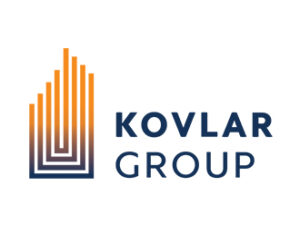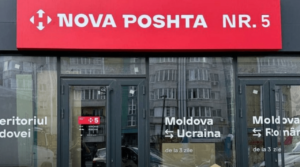
According to Fixygen, JSC Bank Alliance plans to hold a general meeting of shareholders on March 2, 2026.
The information provided about the meeting does not specify the main issues to be put to a vote.
Bank Alliance JSC is a Ukrainian commercial bank operating in the banking services market for corporate and retail clients.

Korosten Chemical Machine Building Plant will hold an extraordinary general meeting of shareholders in the form of a poll: the voting will start on February 17, 2026, and end on February 27, 2026.
Issues related to bank financing and collateralization of liabilities are put to vote. In particular, the shareholders are proposed to approve significant transactions and their terms and conditions under agreements with AT “VST Bank”, as well as to grant preliminary consents for pledge of shares (including the package of 10 544 349 shares – 98,014026% of the authorized capital) and execution of mortgages/pledges of property to secure credit lines, including limits of UAH 55 million and up to UAH 30 million (including under the program “Affordable loans 5-7-9%”).
PrAT “HIMMASH” – is a production enterprise in Korosten (Zhytomyr region), specializing in chemical engineering and industrial equipment.

Turnover on Foxtrot.ua during Love Season 2026 (January 29 to February 18) increased 2.7 times compared to the same period last year, while the site’s overall traffic increased by 46%, which the company attributes to the development of its own ecosystem, gamification, and strategic partnerships, Foxtrot’s press service told the Interfax-Ukraine news agency.
“Love Season 2026 was a real test for Foxtrot (…). The development strategy through mobile channels and the integration of new technologies, such as gamification, allowed us not only to increase turnover, but also to significantly improve interaction with customers,” said Foxtrot CEO Yuriy Polishchuk, whose words are quoted in the press release.
According to the data provided in the press release, turnover in the retailer’s mobile app increased 4.3 times during this period, and the number of transactions made using the app increased 3.4 times compared to last year’s figures for the same period.
A separate element of this year’s Love Season was the gamified tech dating platform Foxy Match. About 11% of the additional traffic to the site was generated by Foxy Match. Users who completed the game received a promo code and converted into buyers, doubling the number of those attracted through standard banner campaigns, confirming the effectiveness of gamification as a sales promotion tool, the retailer noted.
In parallel with the development of its own channels, Foxtrot strengthened its position through interaction with customers on other platforms, ensuring a high share of sales of technology and electronics in large-scale joint promotions, said Kirill Popov-Cherkasov, director of e-commerce at the Foxtrot chain. The retailer’s share of sales in the mono market campaign, dedicated to Valentine’s Day, reached 30%.
The most popular gifts were not only personal gadgets, but also appliances. Among the favorites were game consoles, smartphones, smart watches, appliances from the “beauty and care” category, and home appliances. This year, the top 5 products included: the Philips OneBlade Pro 360 electric shaver, the Sony PlayStation 5 Slim Digital Edition game console, the Apple iPhone 17 Pro Max smartphone in Cosmic Orange, the Apple Watch SE 3 smartwatch, and the Philips NA221/00 multi-cooker.
Foxtrot is one of Ukraine’s largest omnichannel retail chains in terms of the number of stores and sales of electronics and household appliances. As of early 2026, the company operates 127 stores in 67 cities, the Foxtrot.ua online platform, and the mobile app of the same name.
According to Opendatabot, FTD-Retail LLC (Kyiv), which develops the chain, increased its revenue by 17.6% in 2024 compared to 2023, to UAH 14 billion 882.632 million, but received less net profit: UAH 6 million 721 thousand against UAH 314 million 436 thousand, respectively.
In the first nine months of 2025, the company received UAH 12.1 billion in revenue and UAH 167.4 million in net loss.
The founders of the omnichannel retailer Foxtrot are Ukrainian businessmen Gennady Vykhodtsev and Valery Makovetsky.

PJSC Ukrainian Innovation Company has planned to hold a general meeting of shareholders on February 27, 2026. In the provided data on the meeting, the main issues put to vote were not disclosed.
PJSC Ukrainian Innovation Company is a joint-stock company that publishes regulated information on corporate events and decisions of management bodies.

Ukrainian fireproof materials manufacturer Kovlar Group LLC (Kyiv) considers the information attack on the company to be an element of unfair competition.
“Against the backdrop of high-profile corruption scandals related to procurement for Ukraine’s energy sector and Kovlar Group LLC’s offer of Ukrainian-made fire-retardant materials at prices significantly lower than those of the winners of state tenders, we consider such actions to be an element of discrediting the Ukrainian manufacturer and unfair competition,” the company said in a statement posted on its website.
The company received a journalist’s request (dated February 18, 2026), the content of which indicates an attempt to repeat the information discrediting campaign, as in the summer of 2025.
In August 2024, a large-scale information attack was carried out against Kovlar Group, accompanied by commissioned publications of similar materials in a number of media outlets. Their goal was to discredit the company during its active participation in state tenders for the protection of energy infrastructure facilities.
At that time, the company chose the legal route of defense: it appealed to the court, the Prosecutor General’s Office of Ukraine, the National Police, the Ministry of Justice, and financial monitoring authorities. As a result of the inspections, official confirmation was received: the company and its founders operate in accordance with Ukrainian law, are not subject to sanctions, and have no restrictions on their economic activities.
Currently, Kovlar Group LLC continues to operate as usual, fulfills its contractual obligations, and develops production, emphasizing that all products under the Ammokote trademark are manufactured in accordance with current regulatory documents, and that the technical and licensing documentation is valid and complies with regulatory requirements.
“The company operates openly, professionally, and within the framework of current legislation. Participation in government tenders is carried out on a competitive basis. The company is a conscientious taxpayer and has a high level of tax discipline. The company has already proven the groundlessness of previous accusations in the legal field, so we are confident that this time the truth will be on our side,” the statement said.
Kovlar Group LLC was founded in 2015. It is the largest manufacturer of passive fire protection products in Ukraine.
According to OpenDataBot, the company’s authorized capital is UAH 1.2 million. The ultimate beneficiaries are Konstantin Kalafat (40% of shares), Andriy Ozeychuk (35%), and Lyubov Vakhitova (25%).
discrediting, fire protection material, information attack, Kovlar Group, OZEYCHUK, Калафат

In 2025, Nova Post Europe doubled the number of branches in 16 European countries to 800, Nova Post Europe CEO Oleksandr Lysovets said in an interview with Forbes Ukraine.
“At some point, we realized that instead of chasing the number of countries, it was better to focus on deepening our presence in existing markets… We started by copying the Ukrainian model, but quickly realized that each market requires its own logic for entry and scaling,” he explained the change in growth strategy.
According to Lysovets, in 2025, the largest number of branches were opened in Poland (32), Moldova (25), Germany and Spain (24 each), and the total number of employees reached 1,670.
The CEO specified that most of the 800 service points are partner branches and PUDO (pick-up/drop-off) based on partner businesses.
“The company is actively shifting its focus towards partnerships: last year, 90% of new service points were partner ones. But in each country, we look at the existing infrastructure,” Lysovets noted, citing the example of Poland, where InPost operates with over 25,000 parcel terminals, so there is no point in building its own network there.
He also said that Moldova is the only country in Europe where the strategy involves building a full-fledged infrastructure of its own, replicating the model of Nova Poshta in Ukraine. In particular, in 2025, a full-fledged franchise was launched there, with 21 partner branches.
The CEO of Nova Post Europe emphasized that in 2025, the company tripled in size in Moldova. Currently, EUR 2 million is being invested in a new sorting hub, which will be five times larger than the previous one. In particular, this amount is planned to be used to expand the physical presence, which will include, among other things, the installation of 150 parcel terminals, the opening of 150 PUDOs, six own branches, and 60 partner branches.
“The goal is to provide maximum coverage and convenience for customers,” Lysovets emphasized in an interview.
According to him, at the end of the fourth quarter of 2025, Nova Post Europe became profitable in Poland, Moldova, the Czech Republic, and Latvia.
The company, which processed 13 million international shipments last year, plans to increase this volume by more than 30% in 2026 and maintain this pace until 2030. As the CEO noted, these plans will be supported by a new phase of European expansion with investments of over $5 million. In particular, there are plans to launch an automated line in the Czech Republic and a proprietary CSS in Germany.
“In Poland, we are investing $1.8 million in opening 300 partner mini-branches, which will allow us to quickly expand the network using our partners’ existing infrastructure for effective scaling,” Lisovets added.
According to him, the amount of investment in Spain will be about $0.64 million, which will be used to open 50 PUDOs and 86 partner mini-branches.
The CEO also noted that, on average, Ukrainians account for about 60% of Nova Post’s customers abroad, but in Moldova, they account for less than 1%.
In October 2025, company co-founder Volodymyr Poperechnyuk announced that the Nova group of companies, which includes the express delivery leader Nova Poshta and the financial service NovaPay (TM NovaPay), plans to grow fourfold in five years.
The CEO of Nova Post Europe, in turn, noted that fourfold growth is impossible only within the framework of traditional delivery, the existing customer base, or without updating the service package.
“It’s not just about growing existing volumes, but about expanding the market itself for the company through new products, services, and usage scenarios. We see huge room for scaling where we haven’t even begun to truly unleash our potential,” Lysovets emphasized.